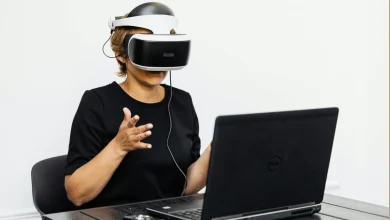
A chip smaller than your fingernail is quietly reshaping the world. You’ll find it in your phone, smartwatch, car, and even in life-saving medical devices. This chip isn’t just about speed or memory—it’s the core of a global transformation.
In this article, you’ll discover how this small piece of silicon is powering innovation, disrupting industries, and shaping the future of technology.
What Is This Tiny Chip?
This revolutionary component is commonly known as a semiconductor chip or microchip. It’s made from silicon and packed with billions of transistors that control electrical signals. Despite its size, it performs complex calculations at lightning speed.
Chips come in different types—CPUs, GPUs, AI chips, and specialized SoCs (System on a Chip). They’re built into everything from smartphones to satellites.
Why This Chip Matters
You might also like: Is Your Phone Spying on You? Here’s the Truth
Chips are the “brains” behind modern devices. They enable smart features, automation, and instant communication. Without them, the digital world would freeze.
Their importance grew during the COVID-19 pandemic when chip shortages slowed down production across the globe. From cars to gaming consoles, the world realized just how dependent we are on these tiny circuits.
Impact on Healthcare
The chip revolution is transforming how we treat and monitor patients. Medical devices now come equipped with smart chips that:
- Track vital signs in real time
- Deliver medication precisely
- Support remote surgeries with AI assistance
For example, wearable health monitors like smartwatches can detect irregular heartbeats and send alerts before a major issue occurs.
These chips have also enabled portable diagnostic tools, helping remote regions access healthcare more effectively.
Boosting Artificial Intelligence
You might also like: Top 7 Tech Gadgets You Didn’t Know You Needed!
AI wouldn’t be where it is today without specialized chips. AI chips process huge datasets faster and more efficiently than traditional CPUs. Companies like NVIDIA, Intel, and AMD are developing dedicated AI hardware that can train and run complex machine learning models.
With better chips, AI is improving:
- Self-driving cars
- Voice assistants
- Fraud detection
- Language translation
This growth will only accelerate as chips get smaller, faster, and more energy-efficient.
Enabling Smart Cities and IoT
From traffic lights to home appliances, chips are turning ordinary objects into smart, connected systems. These Internet of Things (IoT) devices communicate with each other using embedded chips.
Smart cities use chips to:
- Monitor traffic flow
- Manage energy usage
- Detect water leaks
- Improve public safety
As more cities adopt this technology, chips will play a bigger role in reducing waste, saving time, and increasing safety.
Revolutionizing Space Exploration
Space agencies like NASA and private companies like SpaceX rely on advanced chips to guide rockets, control satellites, and transmit data over vast distances.
These chips must handle extreme temperatures, radiation, and vibrations—all while maintaining performance. They enable:
- Real-time navigation
- Autonomous operations
- Data analysis during missions
Without them, exploring Mars or launching commercial satellites would be impossible.
Challenges and Innovations Ahead
As we push for smaller, more powerful chips, we face challenges like:
- Heat management
- Production costs
- Raw material shortages
To solve this, companies are investing in:
- 3D chip stacking
- Quantum computing
- Nanotechnology
These breakthroughs promise to make chips even more powerful and sustainable.
Conclusion
A chip so small, yet so powerful, is changing how we live, work, and communicate. It’s the silent engine behind many of today’s technologies, and its impact will only grow. As innovation continues, this tiny chip could unlock solutions to the world’s biggest challenges.
From AI and healthcare to space and smart cities—the future runs on chips.
FAQs
A semiconductor chip is a small electronic device that controls and processes data using transistors built on silicon.
They power modern tech—smartphones, AI, medical devices, and more—transforming industries and daily life.
Yes. Chips power wearable health monitors, smart pacemakers, and AI diagnostic tools.
The future includes quantum chips, 3D stacking, and smaller, faster, more efficient designs.
A global chip shortage disrupted supply chains, showing how vital chips are to manufacturing and technology.





One Comment